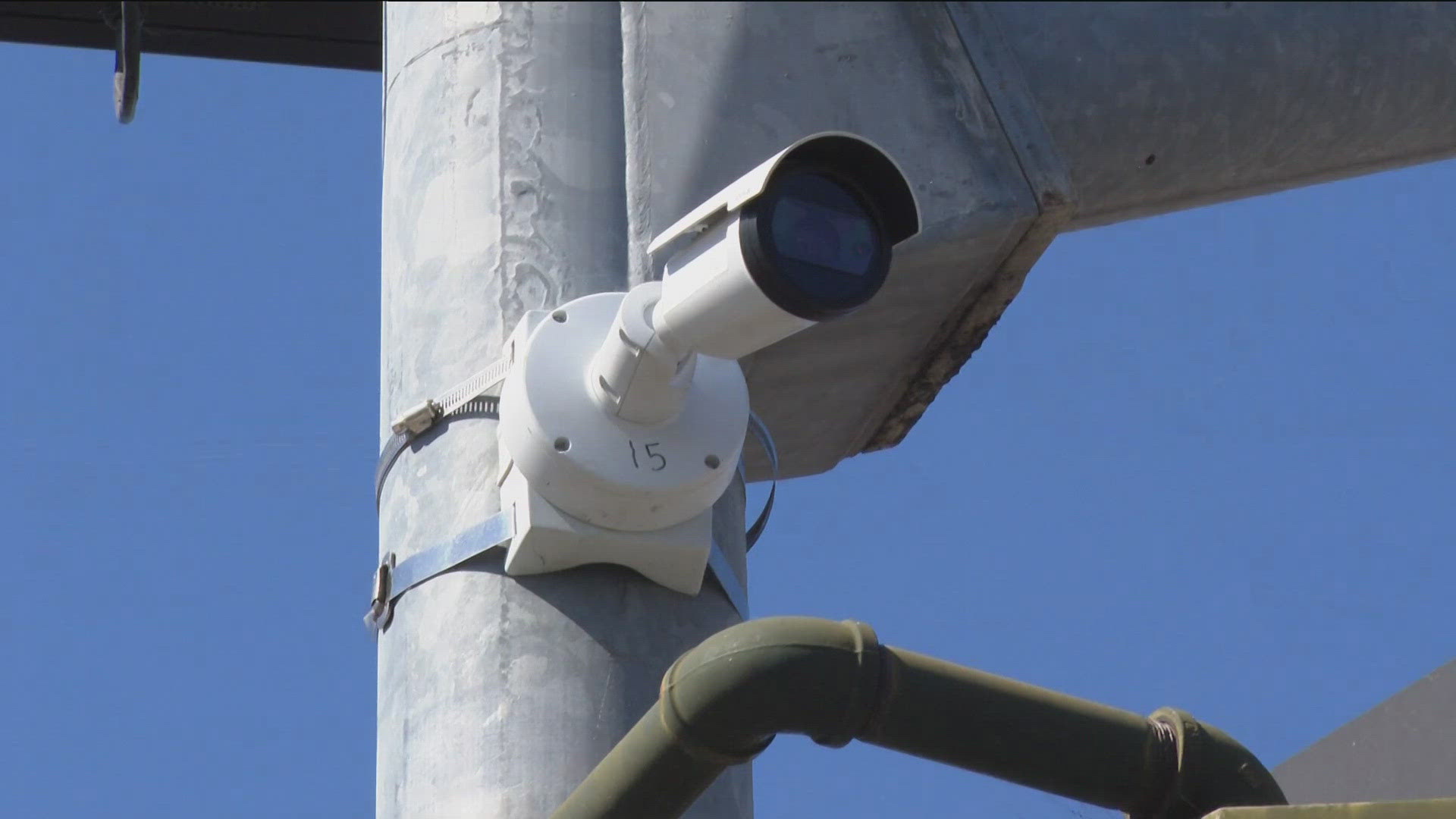SAN DIEGO — Last year, San Diego officials voted to bring back mass video surveillance to roughly 500 streetlights throughout the city in what officials deemed high crime areas and busy intersections. The devices fastened to streetlights include video cameras able to capture panoramic views and license plate readers.
It was a controversial decision by City Council that placed the city under a $12 million contract with companies Ubicquia and Flock Safety. While San Diego Police Department has long said the cameras are a great crime-solving tool, activists worry they could pose a greater harm than help. Civil liberties protectors say they disproportionately target minorities and pose a privacy concern.
To combat those concerns, the city formed a Privacy Advisory Board, championed by now former councilmember Monica Montgomery Steppe. The committee is essentially meant to act as oversight and guide city leaders on the use and implementation of surveillance tech.
But now San Diego Police want to move some of the cameras after locations had already been agreed upon due to "significant infrastructural issues" found when they attempted to install the cameras.
But it won't be an easy turn, thanks to an ordinance passed in 2022 that enacted both the board and a multi-step approval process that requires transparency from law enforcement.
What police are seeking
According to city documents, 412 of the cameras have been installed — but only 369 are working properly.
Myriad reasons are listed for the camera's previously approved locations not being a good fit. According to San Diego Police Captain Jeff Jordon, who oversees police special projects such as the streetlights, most focused on the electrical or structural integrity of the light pole chosen.
According to Jordon, SDPD encountered these hurdles:
- City light poles with no power.
- City light poles without constant power.
- Low voltage at the light pole.
- High voltage at the light pole.
- Light poles that no longer exist.
- Light poles equipped with small cell cites.
- Light poles belong to CalTrans.
- Private property foliage blocking camera views.
- Business sign or flags blocking camera views.
- Large established trees on city property blocking camera views.
- Building blocking camera views.
- City street signs blocking camera views.
The proposal SDPD submitted doesn't just impact the 131 cameras left to install. The department wants the liberty to implement a "two-block zone" when choosing locations of the cameras. Essentially, if officials hit a hurdle when installing the camera, or with one they have already installed, police can choose a different location within that two-block region.
Before the request is seen by the City Council, the plan needs to be vetted by San Diego's Privacy Advisory Board and the Public Safety Committee.
The Privacy Advisory Board had some questions regarding the proposal, one being whether "community requests" influenced any location changes.
Jordon with SDPD said no — in short — but did add the department is seeking approval for new locations based on "community requests, infrastructural issues, natural obstructions and changing crime trends."
Infrastructural issues, or overstepping oversight?
The technology that was successfully installed has been effective, SDPD says. The streetlight video has been used by homicide detectives and traffic investigators. The license plate readers have been used to recover 92 vehicles, 5 firearms and roughly $1.2 million in stolen property.
But members of the TRUST Coalition still hold concerns that San Diego Police might overstep the oversight.
CBS 8 spoke with member of the TRUST coalition Seth Hall. He's worried about civic leader's dedication to the established process.
"I’m concerned that the department and the city are no longer really interested in following the rules of the road but the communities of San Diego set out in 2020 when we were trying to figure out how to make it so that the city can use this technology while also benefiting from the trust of San Diegans," Hall said.
He adds, "This is incredibly powerful technology and I think it's really important for our day to day lives that we get our arms around how this technology is gonna be used in a way that's not abusive that in fact goes to protecting communities."
CBS 8 has reached out to San Diego Police about the proposal, but officials said they are on holiday and will resume media requests on Monday.
SDPD's proposal will be heard by San Diego's Public Safety Committee on July 10 at 2 p.m.
WATCH RELATED: City Council to consider $12 million Smart Streetlights program

